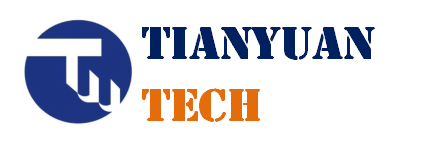Intellegendo applicationes industriales productio tuborum saldatorum electricitate
Saldat cu rezistență electrică (ERW) molas tuborum lapidem angularem manufacturae industrialis modernae repraesentant, praebendo tubos saldatorum de altissima qualitate, qui innumeras sectores orbis terrarum servant. Haec subtilia systemata productionis technologiam recentiorem saldandi adhibent ad creandos tubulorum productos exactos et durabiles, qui ad varia usus sunt necessarii. Versatilitas et efficacia molae tuborum ERW eos reddunt insuperabiles in processibus manufacturandi hodiernis, sectores ab aedificando ad producendam energiam ferentes.
Significatio Molae Tuborum ERW iacet in eorum facultate tubulorum soldatorum constantem et bonae qualitatis ad moderatos sumptus producendorum. Huiusmodi systemata productionis revolutionem fecerunt in modis quibus industrii tubulorum fabricantur, praestantias in celeritate, praecisione et materiae efficientia offerentes. Dum exploramus varia ERW tubulorum molinorum applicationes in variis sectoribus, patefaciemus quomodo haec technologia continue progressionem industrialem formet.
Aedificatio et Rerum Publicarum Progressus
Applicationes Structurales in Aedificiis
In industria aedificandi, ERW tubulorum molini funtionem praecipuam agunt in tubis ex ferro structurale producendis, quae in aedificiorum basibus, columnis sustinentibus et elementis architecturalibus adhibentur. Hi tubuli praestantem rationem vim ad ponderis habent, eosque idoneos reddunt ad moderna aedificia. Ab aedificiis mercimonia ad domorum complexus, ERW tubuli firmitatem structuralem necessariam praebent dum pulchritudinem conservant.
Ad ERW tuborum fabricas versatilis esse sinit manufactores tubos variis magnitudinibus atque specificationibus producere, quae architectonicis variis necessitatibus satisfaciunt. Hi tubi praecipue iuvant in operibus ubi utraque structurae performatio et species visibilis sunt necessariae, ut in elementis structurae productis in architectura moderna.
Progressio Infrastructurae et Ingeniaria Civilis
Operibus infrastructurae magnopere confidunt in tubis ERW ad usus varii a pontis aedificandis usque ad balustradas in viis publicis. Durabilitas et fiducia tuborum productorum ERW eos reddit necessarios in publica infrastructurae progressione. Ingeniarii civiles praecipue aestimant constantiam in qualitate et dimensionalis exactitudinis quae fabricae tuborum ERW praebent.
Facultas efficiendi magnas quantitates tuborum regulariter factos reddit molinas tuborum ERW necessarias in magnis rebus publicis. Hi tubi saepe adhibentur in utilitatibus subterraneis, structuris supportandi, ac systematibus vehiculorum, ubi firmitas et diuturnitas praecipuae sunt.

Applicatio in Industria Olei et Gas
Systemata Conveyendi per Tubos
Industria olei et gasi unum e maximis emptoribus productorum tuborum ERW refert. Hi tibi copiose adhibentur in systematibus tuborum pro vehendis oleo, gasi naturali, et productis subtiliter elaboratis. Molinae tuborum ERW quae tubos certificatos API conficere possunt, sunt necessaria ad rationes severas industriae petroleum reddendas.
Molae tuborum ERW modernae adhibent progressas rationes probandi et moderandi qualitatem, ut producta eorum standarda ardua transportation petrolei et gasi satisfaciant. Efficiencia harum moliarum in creandis ductibus longis constantis et bonae qualitatis tuborum eas ad administrationem rei energeticae necessarias fecit.
Aedificia et Machinae Rerum Purificandarum
In aedificiis purificandi et elaborandi, tubi ERW ad varias functiones in machinis et systematis elaborandi conficiendis adiuvant. Ex mutatoribus caloris ad vasa pressionis, hi tubi conditiones extremas ferre debent intereaque integritatem structuralem conservare. Molae tuborum ERW praecisionem et qualitatem praebent quae his usibus per se ipsis necessariae sunt.
Potestas tuborum cum certis proprietatibus metallurgicis et superficiebus elaboratis creandi molis tuborum ERW praestantiam et valorem in manufactura aedificiorum purificatorii dedit. Hi tubi saepe requirent speciales tecturas aut tractationes, quae per recentiores processus productionis ERW accommodari possunt.
Industriæ Automotive Integrale
Membra et Chassis Vehiculi
Industria automotive magno opere in ERW tube mills nititur ad producenda membra structuræ. Ab chassistibus ad roll cages, tubi ERW vim et fidem praebent quae in modernis vehiculis necessariae sunt. Praecisio ERW tuborum molinorum qualitatem certam reddit, quae pro normis salutis automotive necesse est.
Fabricatores tubos ERW in schematibus vehiculorum adhibent ubi ponderis diminutio necesse est, integritate tamen structuræ servata. Facultas tuborum cum certis dimensionibus et proprietatibus mechanicis producendorum tuborum molinos ERW in fabricando automobilium inpretiosos reddit.
Exaustionis Systematis Fabricatio
Tubuli ERW sunt componentes fundamentales in systematibus automotive evacuandi. Facultas tubulorum cum praecisis specificis et superficiebus finitis producendorum tubuli ERW molinorum necessarios reddit ad systemata evacuandi fabricandos. Hi tubuli altas temperaturas et condiciones corrosivas ferre debent dum firmitatem structuralem retinent.
ERW tubuli molinorum modernorum technologiam adfectam includunt ad tubulos producendos qui adstringentioribus emissionibus controlis rebus satisfaciunt. Constantia et qualitas ERW-tubulorum productorum confert ad meliorem systematis evacuandi operationem et durabilitatem.
Agriculturae et Systemata Irrigationis
Irrigationis Infrastructurae Aedificationem
Operationes agriculturae tubulis ERW ad systemata irrigationis et distributionis aquae rete pendent. ERW tubuli molinorum ductos producunt qui ad aquae distributionem efficientem in locis agriculturae necessarii sunt. Durabilitas et pretii iusti ERW tubulorum eos ad maiora irrigationis opera aptos reddunt.
Potestas tuborum resistentium caelo creandorum cum specificatis unguentis adiuvat ut diuturna in agris perficiant. Fabricae tuborum ERW facultatem manufacturandi suppeditant quae ad modernam agricolae structurae evolutionem opus est.
Agricultural Equipment Manufacturing
Fabricatores agrorum instrumentorum tubos ERW in variis usibus adhibent, ab armaturis ad ferramenta tractandorum. Facultas molinorum tuborum ERW varia specifica creandi tubos ad varias agrorum instrumentorum necessitates satisfaciendas. Hi tubi ad durabilitatem et fidem modernorum agrorum machinarum conferunt.
Efficientia productio tuborum ERW adiuvat fabricatores ut pretiis competitivis maneant dum tamen componentibus de agris de alta qualitate certent. Constantia qualitatis et accuratio mensurae tuborum ERW praecipue pretiosae sunt in instrumentis regulariter factis.
Questiones Frecventer Interrogatae
Quae facit molinos tuborum ERW dissimiles ab aliis modis tuborum creandorum?
Officinae tuborum ERW utuntur technologia soldandi per resistentiam electricam, praebendo celeritatem, efficientiam, et constantiam meliorem quam aliae methodi fabricandi. Hoc processu firmiores iuncturae soldati obtinentur et productio continua tuborum altioris qualitatis cum exacta dimensionum moderatione efficitur.
Quomodo officinae tuborum ERW qualitatem producti confirment?
Officinae tuborum ERW hodiernae systemata qualitatis moderandi progressa includunt, inter quae sunt instrumenta inspiciendi online, examinatio ultrasonica, et systemata moderandi automata. Haec constantiam qualitatis iuncturae soldati, moderationis dimensionum, et superficiei conficiendae per totum processum productionis servant.
Quae sunt necessitudines curandi pro officinis tuborum ERW?
Fabricae tuborum ERW necessitantur cura frequens, inter calibratio instrumentorum soldandi, examinatio directurae rotarum, et substitutio instrumentorum secantium. Programma curae preventivae adiuvant ad conservandam constantem qualitatem productionis et ad tempus intermissionis minuendum. Examinatio et operatio frequens componentium criticorum sunt necessariae ad optimam fabricae tuborum performationem.
Fabricae tuborum ERW possuntne specificata tuborum consignatarii producere?
Ita vero, fabricae tuborum ERW configurari possunt ad tubos cum variis diametris, crassitiem parietis, et generibus materialium producendos. Fabricae modernae in parametris productionis offerunt flexibilitatem, qua manufactores adimplere potest specificata emptoris dum tamen efficiencia et qualitas conservantur.

